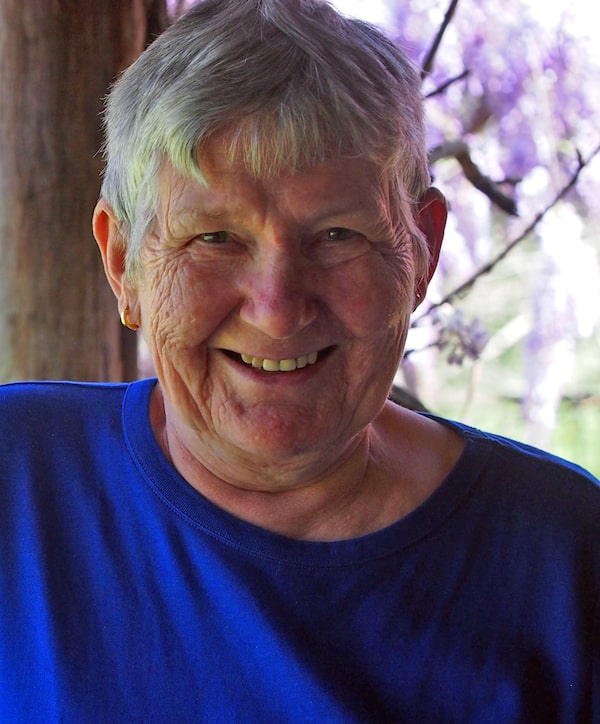
Inara Moloney.The Globe and Mail
Inara Moloney Displaced person. Poet. Mother. Technologist. Born April 5, 1940, in Talsi, Latvia; died July 31, 2018, in Toronto, of ovarian cancer, aged 78.
When pressed to comment on growing up in a displaced person’s camp in Germany, Inara would reply, “We were unsupervised kids, so we had fun!” It was part of her lifelong commitment not to trade in personal adversities.
Inara was born in Latvia in 1940 shortly before Soviet annexation. A decade of war, flight and refugee camps ended in 1950 when her family emigrated to Canada, and where Inara fell in love with the English language. A 1956 newspaper interview reveals a serious-minded girl: “You should go to school simply because you can learn more,” she said.
A strained relationship with her strong-willed mother led Inara to run away from home in 1958. After a few anxious months, her mother found her and Inara returned home. She went to work and attended high school in the evenings. Despite their differences, Inara inherited her mother’s love of learning and poetry.
Even though she was one course shy of admission requirements, Inara applied to the University of Toronto. Inevitably rejected, she travelled to Toronto to appeal to the dean who politely told her he’d be in touch. Term started with no word but Inara mustered the courage to call. She got in, earned a BA and MA, and wrote her thesis on aesthetics and Nietzsche.
In 1970, Inara married a barrister from Australia and they had a son, Terrence, her only child. Determined to raise me with more freedom than she’d had, Inara set few rules. Even when a teenage friend of mine left evidence in her home of having had too much to drink, Inara’s fury was assuaged when she discovered that he loved and wrote poetry. They’ve been friends ever since.
Although she and my father shared a love of literature and the arts, Inara believed their beauty could brighten her tomorrows while he thought they prophesied Western decline. After they separated in 1978, she took more shifts at the Ottawa General Hospital, where she worked as a technologist in the hematology lab. She found it almost as gratifying to analyze blood cells and their abnormalities as she did to reflect on the structure of a poem by Seamus Heaney or Wallace Stevens.
In 2000, Inara retired and moved to Toronto to be closer to family. She took a part-time job at the Cheese Boutique, a gourmet food shop. How she earned her daily bread, however, was secondary to Inara. Whatever road she travelled, she always kept a volume of poetry in her handbag. Poetry could defeat armies of misfortunes or capture the joy of listening to her much-loved grandchildren. Visitors to her home often found they had to gently displace one or more translations of Homer or the Aeneid to find a seat.
One of her favourite poets, Czeslaw Milosz, wrote of the poet’s responsibility to redeem Polish, his mother tongue, from the violence of the 20th century by setting before it, “little bowls of colours, bright and pure if possible, for what is needed in misfortune is a little order and beauty.” Inara gathered the bowls. That was enough for her.
Terrence Moloney is Inara’s son.
To submit a Lives Lived: lives@globeandmail.com
Lives Lived celebrates the everyday, extraordinary, unheralded lives of Canadians who have recently passed. To learn how to share the story of a family member or friend, go to tgam.ca/livesguide